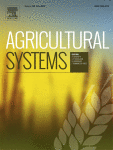The project targeted distinct agroecologies that are home to over 30 million rural people out of whom an estimated 10 million faced acute food security problems. In its first two years the project focused on agroecologies in Rwanda and Ethiopia and successes and lessons from these sites were scaled out to similar agroecologies in Uganda and Burundi in the third and fourth years. More than 75% of the population in the countries targeted by this project (Ethiopia Rwanda Burundi and Uganda) depend on smallholder agriculture in which a major increase in both crop and livestock production is a prerequisite to achieve food self-sufficiency. While intensive continuous cultivation is more common in Rwanda and Burundi where land parcels are very
small (average 0.7ha) the same applies to the highlands of Southern and Eastern Uganda. Additionally severe land shortage low tree diversity and cover; poor tree management options; poor quality seed and seedlings; fragile ecosystem as a result of landslides; firewood shortage; declining soil fertility due to low crop productivity; environmental degradation; limited and ineffective agricultural extension methods; and inadequate dry season fodder for animals are some of the prevalent challenges that led to food insecurity in Uganda over the years. The project therefore purposed to address these issues through activities focused on: Identifying innovative approaches to address natural resource management issues; Improving access to quality germplasm and tree management options; Identification of market opportunities; and Working within the science policy interface with agroforestry and capacity building emphasized along the value chain.






















